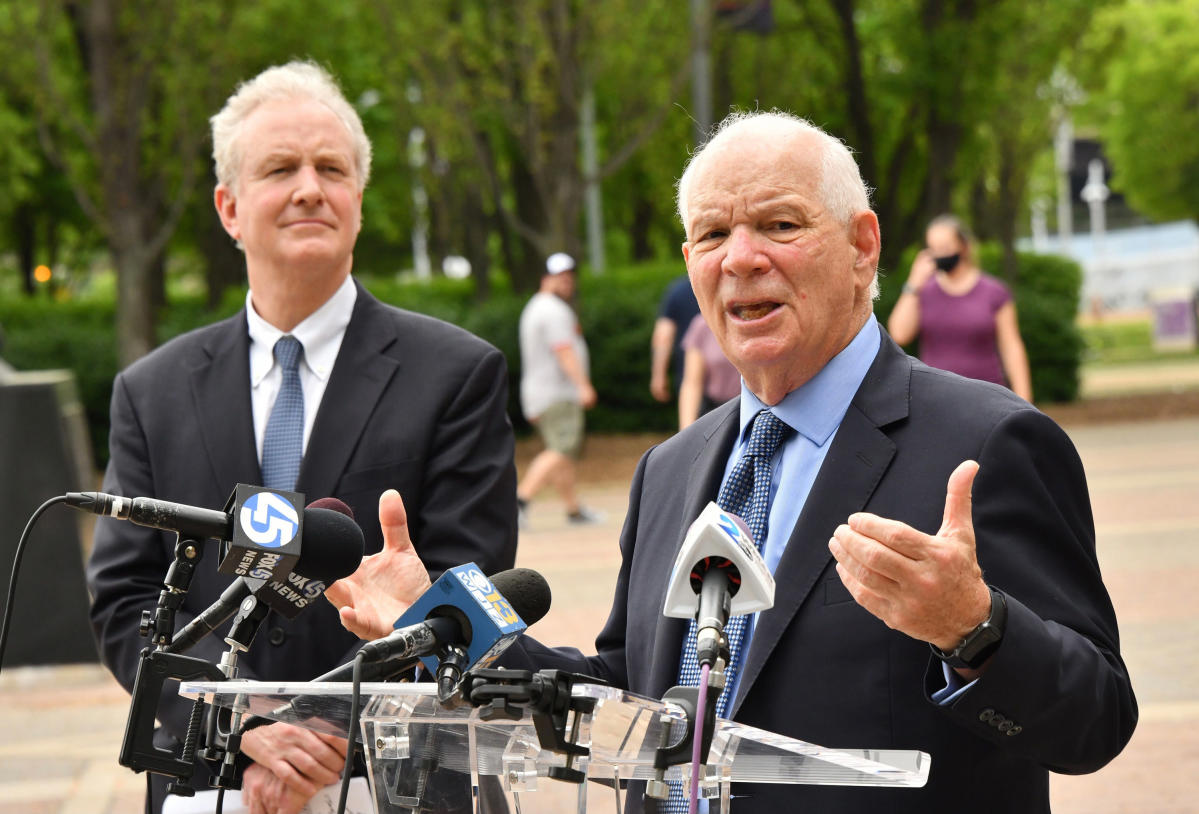The vote had been expected to be close. Her nomination had been narrowly approved, 11-10 on a party-line vote by the Judiciary Committee in January.
As they did in their voting on Tuesday, Republicans rallied against her at that committee hearing, citing, among other things, a union brief she signed in 2017 against a Colorado baker who refused to make a wedding cake for a same-sex couple.
Democrats on Tuesday cited her backing by major labor unions and dozens of civil rights and workers’ rights advocacy groups.
In a Senate floor speech, Maryland Democratic Sen. Chris Van Hollen called Berner “a highly experienced litigator” and said her confirmation “would mark a significant milestone for the 4th Circuit. If confirmed she would be the first openly gay, LGBTQ judge to serve on that court.”
Van Hollen and fellow Democrat Ben Cardin, the state’s senior senator, had recommended the appointment of Berner, whom Cardin on Tuesday called “an extraordinarily qualified candidate.” President Joe Biden, a Democrat, nominated her last November.
Berner, a Montgomery County resident who is general counsel to the Service Employees International Union (SEIU), will fill a slot open because Diana Gribbon Motz, a former Baltimore lawyer, stepped down in 2022 to become a senior judge, meaning she has a limited caseload.
The 15-member 4th Circuit is based in Richmond, Virginia, and hears appeals from federal district courts in Maryland, Virginia, West Virginia, North Carolina and South Carolina. Among its prominent Maryland cases is one in which a three-judge panel in November found a Maryland law unconstitutional that requires residents to get a handgun qualification license before purchasing or obtaining a firearm. Gov. Wes Moore, a Democrat, appealed to the full court, and the case is pending.
Berner will be the third openly LGBTQ+ woman to serve on any of the nation’s federal appellate courts, said Maya Wiley, president and CEO of the Leadership Conference on Civil and Human Rights, an advocacy organization.
“Her confirmation adds crucial lived experience to the court and sends a powerful signal to young LGBTQ lawyers, law students, and other potential future judges that they belong on the federal bench. That matters,” Wiley said in a prepared statement on Tuesday.
“It’s incredibly historic,” said University of Richmond law professor Carl Tobias. “We’re in the capital of the Confederacy down here. She is a very qualified, experienced person.”
Berner’s work includes acting as counsel for the SEIU’s amicus brief before the U.S. Supreme Court defending the Affordable Care Act, the health care law known as “Obamacare,” in 2018. She served as a staff attorney for Planned Parenthood from 2004 to 2006.
Republicans opposed her appointment in the committee, citing the 2017 union brief siding against the Colorado baker and referencing a statement she made in 2018 that the “right-to-work” movement is racist “at its core.”
Right-to-work laws in some states (but not Maryland) prevent unions from mandating that all workers of a company pay dues.
In written responses to committee questions in December, Berner said she made the statement to the American Constitution Society in 2018 in her capacity as the union’s general counsel, and that her speech was framed around “the history of the right-to-work movement” rather than the present day. A judge’s responsibility, she said in her responses, is to apply precedent to facts “without regard to prior representation or personal opinions. I understand that the role of a judge is a very different role than the role of an advocate.”
Democrats hold a narrow, 51-49 Senate majority, meaning Democratic senators can only afford one defection if all the Republicans are present and oppose a nominee.
At the same time Berner was nominated, Biden also nominated attorney Adeel Mangi to the Philadelphia-based 3rd U.S. Circuit Court of Appeals.
He would be the first Muslim American judge to serve on a circuit court.
Mangi was also approved 11-10 on a party-line vote by the Judiciary Committee in January, but his nomination has not come up for a full Senate vote.
_____
